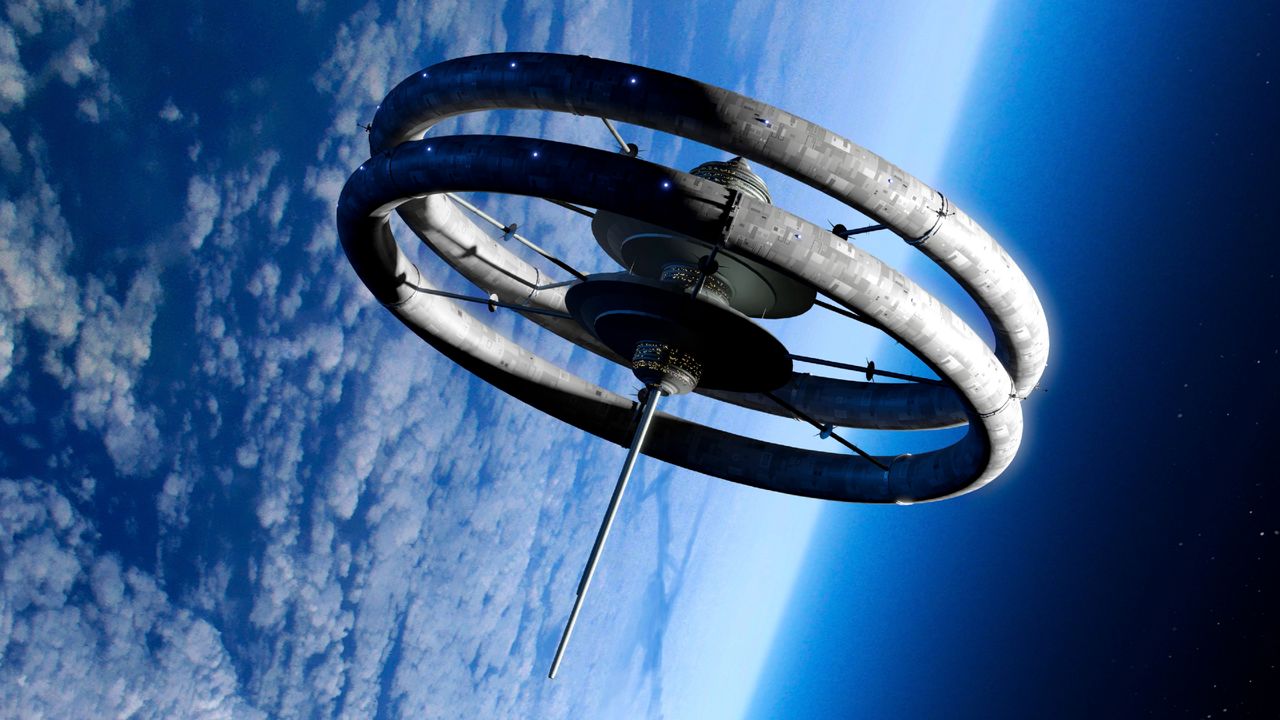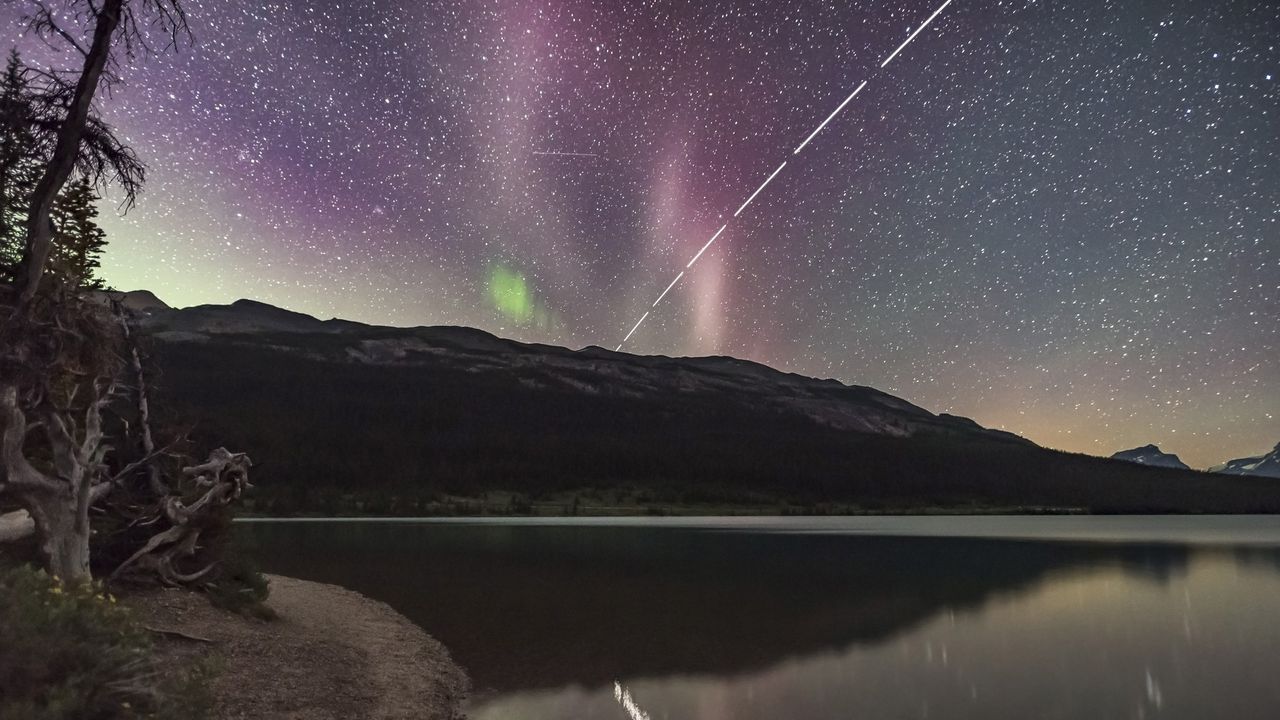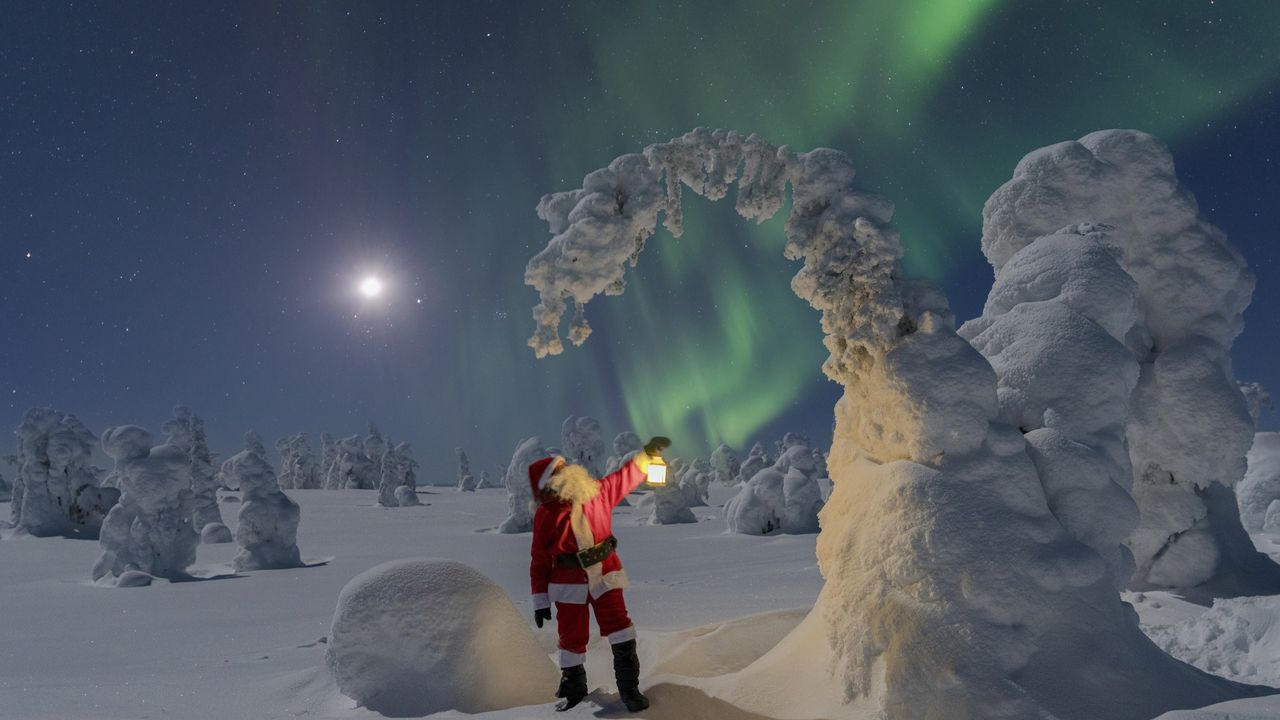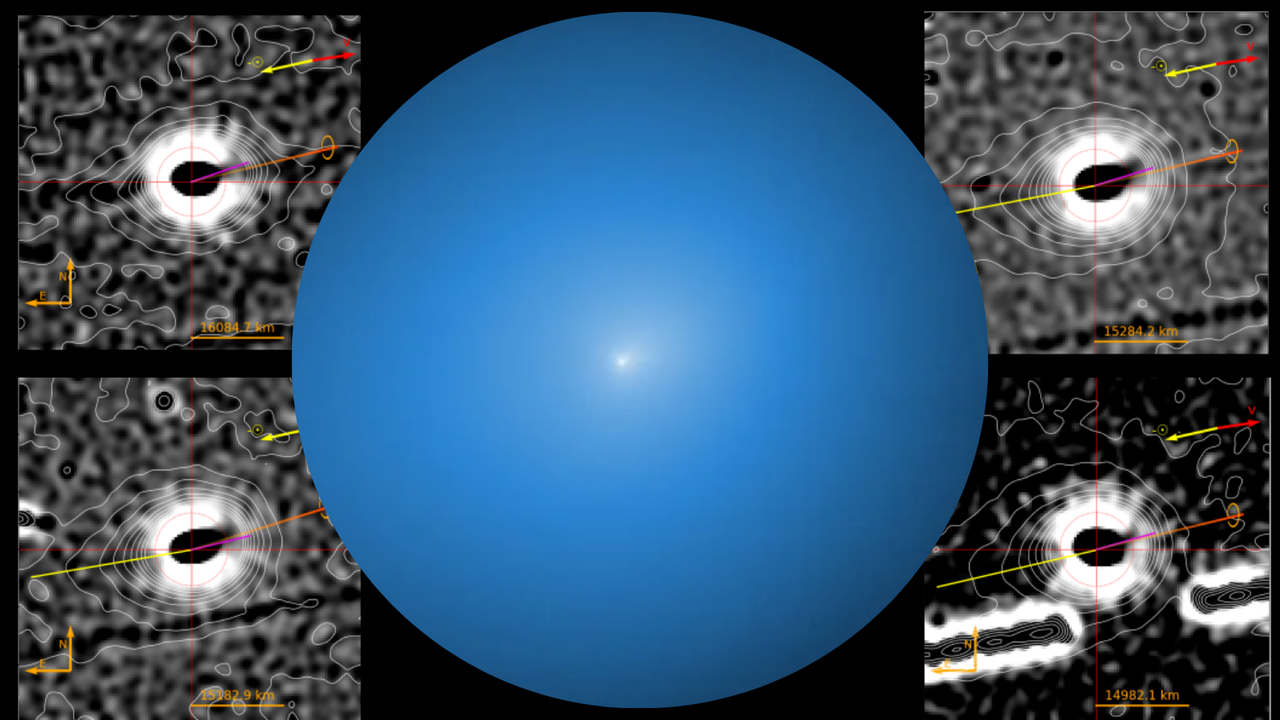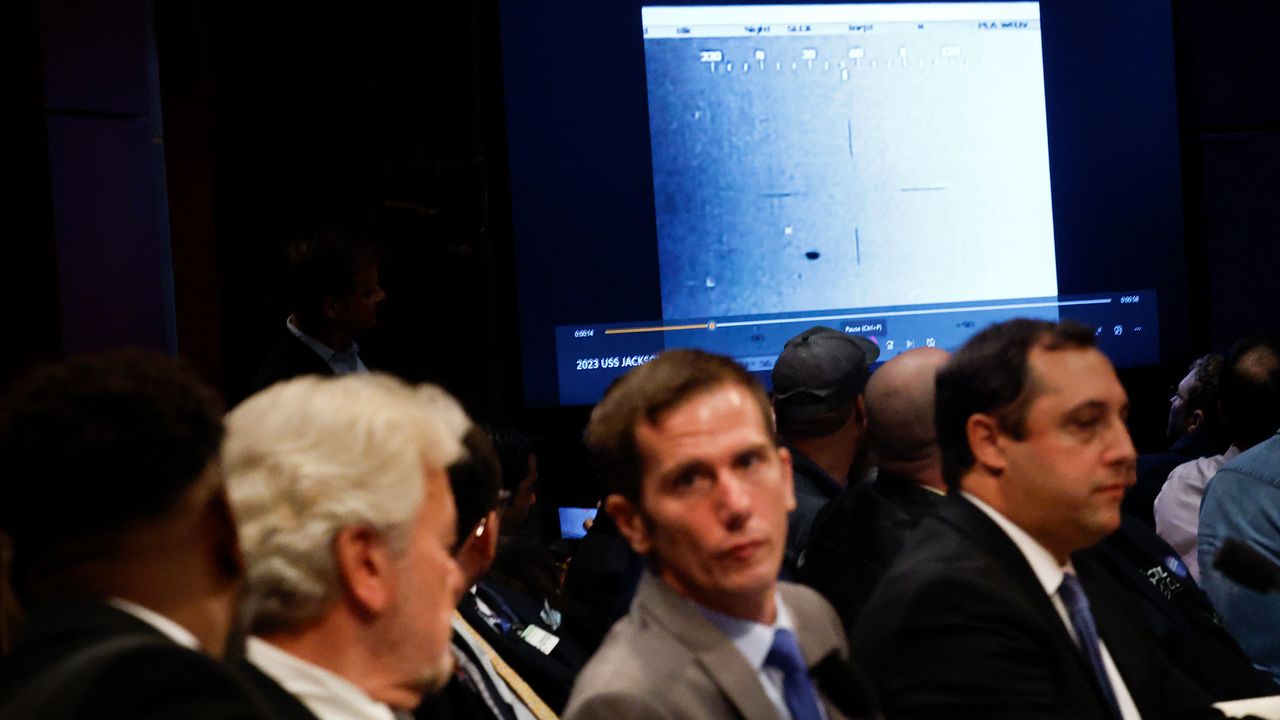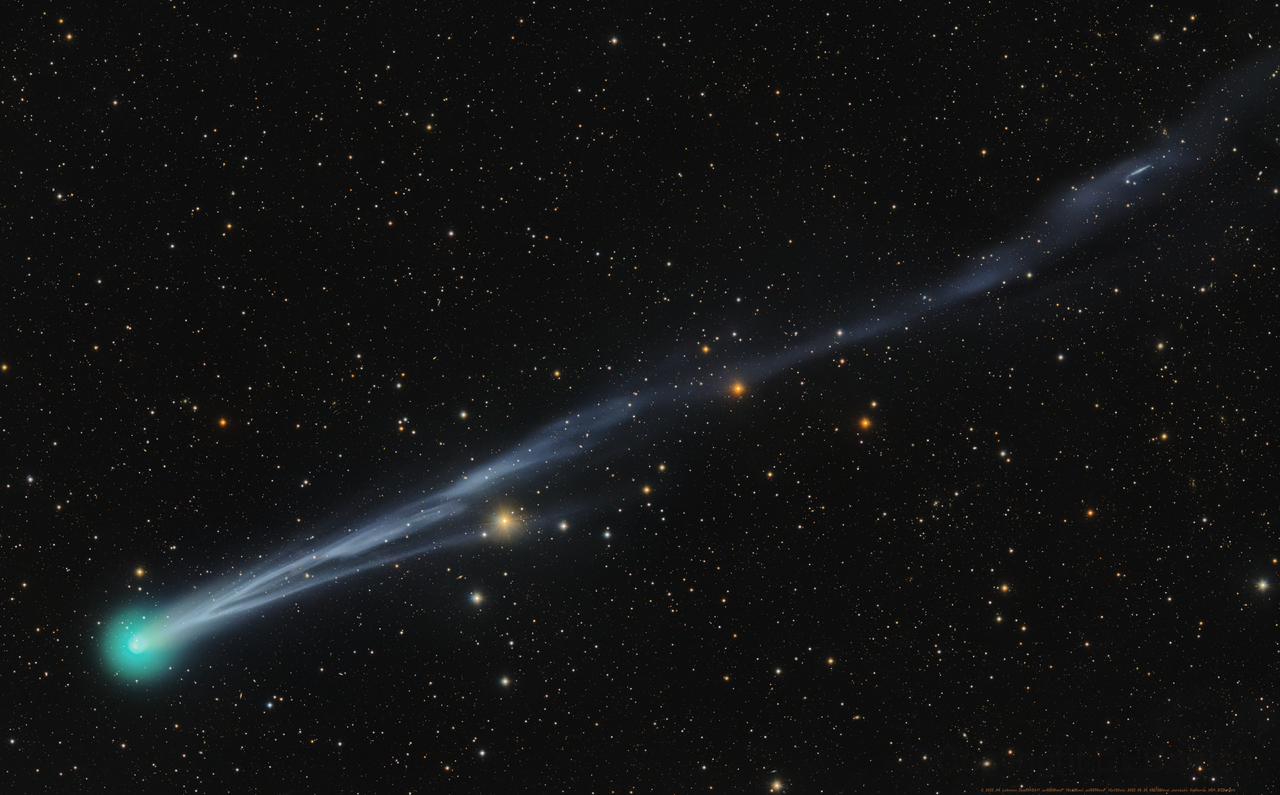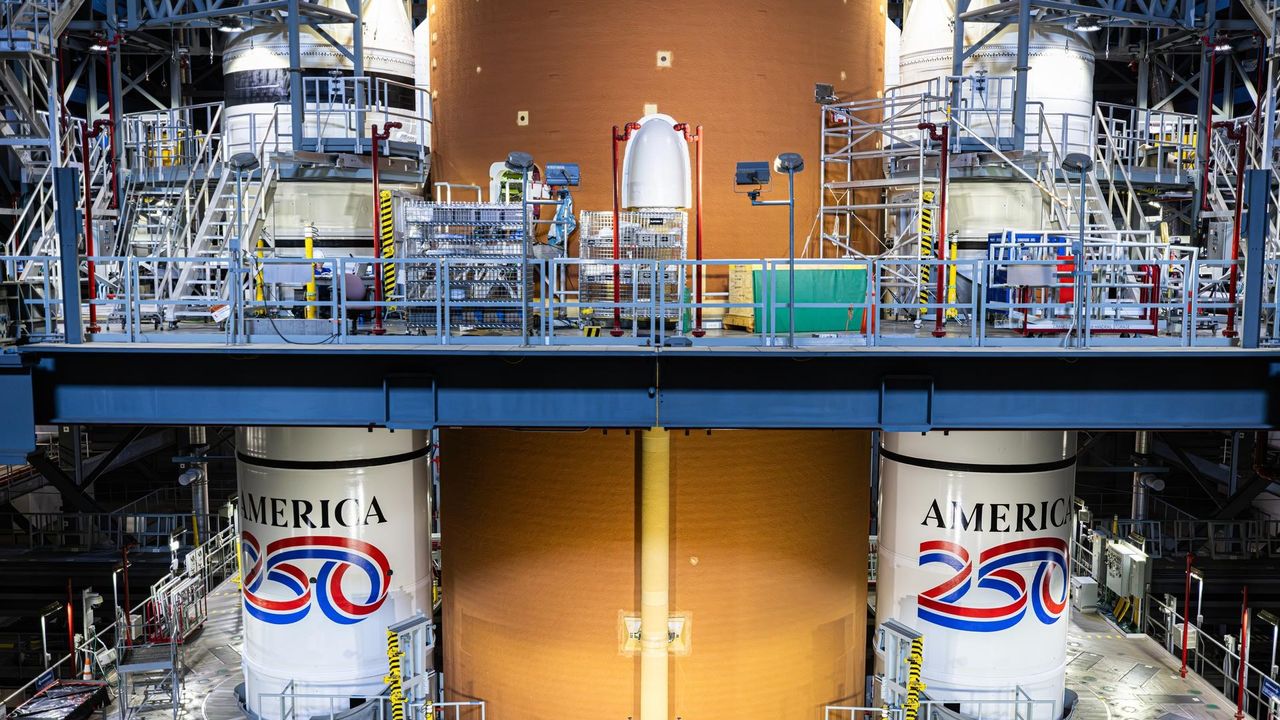Science
Russia patents space station designed to generate artificial gravity
PositiveScience
Russia has patented a new design for a space station that aims to generate artificial gravity by rotating habitable modules around a central axis, creating centrifugal force to simulate gravity for crew members. This innovative approach could enhance long-duration space missions.
Before trips to Mars, we need better protection from cosmic rays
NeutralScience
Before embarking on missions to Mars, researchers emphasize the urgent need for improved protection against cosmic rays, which pose significant health risks to astronauts outside Earth's magnetic shield. Current technologies may not adequately shield space travelers from these harmful radiation levels, necessitating advancements in protective measures.
Santa's sleigh or the International Space Station? How to spot a bright Christmas flyby Dec. 24 and 25
NeutralScience
Early risers in North America and Europe may witness a bright light gliding across the sky on December 24 and 25, coinciding with a flyby of the International Space Station (ISS). This event presents a unique opportunity for skywatchers to distinguish between the ISS and the traditional imagery of Santa's sleigh.
Northern lights may delight this Christmas — here's what you need to know
PositiveScience
Fast solar winds and a potential coronal mass ejection are expected to create conditions favorable for viewing the northern lights this Christmas, with auroras possibly visible across various regions. This celestial event is anticipated to delight skywatchers during the holiday season.
Interstellar comet 3I/ATLAS reveals weird wobbling jets in rare sun-facing tail
PositiveScience
The interstellar comet 3I/ATLAS, having recently moved away from Earth, continues to intrigue astronomers with its unusual wobbling jets in its sun-facing tail. This comet has been observed to exhibit a unique X-ray glow extending approximately 250,000 miles into space, revealing interactions between its gases and solar particles.
Watch Indian rocket launch record-breaking BlueBird 6 smartphone satellite to orbit tonight
PositiveScience
An Indian LVM3 rocket is set to launch the BlueBird 6 smartphone satellite for AST SpaceMobile tonight, December 23. This mission marks a significant milestone in satellite technology, showcasing advancements in mobile connectivity through space-based solutions.
We didn't find answers in 2025, but UFO researchers say the search continues
NeutralScience
In 2025, UFO researchers reported that their quest for extraterrestrial life has not yielded definitive answers, emphasizing that the search for understanding continues. Despite advancements in technology and research, the mystery surrounding unidentified flying objects remains unresolved.
How 2025 became the year of comet: The rise of interstellar 3I/ATLAS, an icy Lemmon and a cosmic SWAN
PositiveScience
The year 2025 has been marked by significant cometary events, particularly the rise of interstellar comet 3I/ATLAS, alongside other celestial bodies like Lemmon and SWAN, captivating the interest of astronomers and the public alike.
Artemis 2 moon rocket gets 'America 250' paint job | Space photo of the day for Dec. 23, 2025
PositiveScience
NASA's Artemis 2 moon rocket has received a special 'America 250' paint job, celebrating the upcoming 250th anniversary of the Declaration of Independence. This development highlights the mission's significance as it prepares for its launch in early 2026.
